Resveratrol May Treat Obesity and Diabetes By Altering Gut Bacteria

Introduction
I came across an interesting study today from the Journal of the American Diabetes Association by Sung et al [1] that looks at the potential effects of resveratrol in diabetes and obesity in mice.
I have previously posted on how autism could be treated by modifying gut bacteria and how the growing role that they seem to play in a host of diseases.
This study is interesting because it suggests that at least part of the activity on glucose (blood sugar) control by resveratrol may be related to changes in the gut bacteria.
(NB - I am trying some experimentation with formatting here. Let me know if you prefer this or my usual method.)
Resveratrol - What is it?
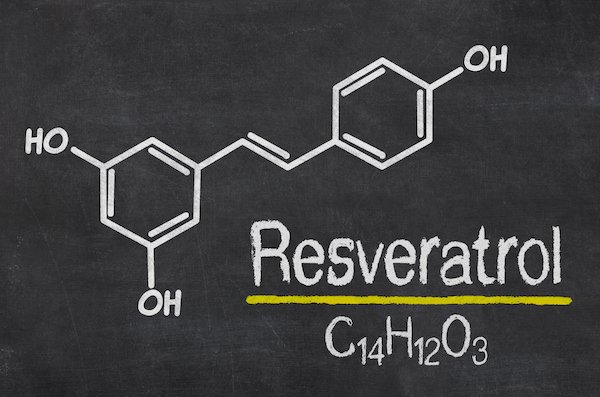
Resveratrol is a type of compound called a polyphenol that is found in certain plant sources, particularly certain types of berries and grapes.
It is most commonly associated with red wine and the mediterranean diet.
It came to prominence in research around the turn of the century as a potential life-extension supplement.
As someone who is particularly interested in the anti-ageing field it is something that I have followed for some time.
The overall research as it applies to ageing has been mixed and at times inconsistent.
More recent research like today's study has started to examine the effects of resveratrol on type II diabetes and obesity.
It suggests that one of the reasons for previously inconsistent results may be that a large part of the effect of resveratrol comes from changes in the gut bacteria.
For practical reasons these may be more difficult to modify in the human population and this might explain why previous studies have shown mixed results.
Design/Methods
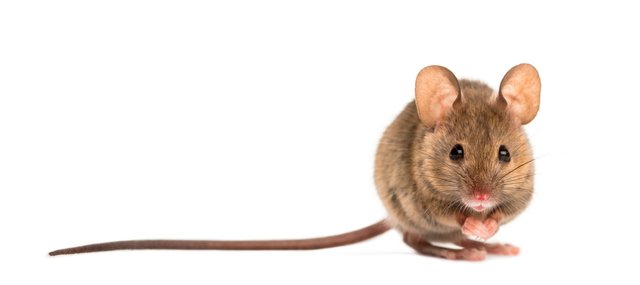
There were 3 main components of the study:
- Testing the effects of different diets (see below) on glucose metabolism (see glucose tolerance test below) in mice.
- Testing the effects of the different diets on the microbiome (combination of bacteria in the gut) of the mice.
- Testing to see if the effects of resveratrol supplementation could be duplicated by faecal transfer of the microbiome between groups alone.
Initial Sample
The sample consisted of 40 male mice aged 8 weeks of age. These were split into four groups according to diet:
- Fed chow (the name for a standard generic type of feed used in research).
- Fed chow and 0.4% resveratrol.
- Fed a high fat and high sugar diet (HFHS) alone.
- Fed a HFHS diet and 0.4% resveratrol.
Each diet was given for 8 weeks.

Glucose Tolerance Test
The mice were tested for glucose (blood sugar) control using something called a glucose tolerance test (GTT).
GTT is a common test to see the body's response to sugar.
If you have ever been tested for diabetes or pre-diabetes you may have received this test.
In this case the mice were injected with glucose and their blood was collected at a variety of intervals for up to 120 minutes after administration, to test how quickly the levels went up and down.
In the case of diabetes, or pre-diabetes the blood glucose stays raised for longer than in people who do not have these conditions due to either a lack of insulin or inability/reduced ability of the body to respond to insulin.
This is called impaired glucose tolerance.
WebMD has a nice summary of the human version of the test if you would like to read more.
Second Sample - Mice Used for Faecal Microbial Transfer (FMT)
The aim with this group was to study if simply transplanting the gut bacteria from the resveratrol treated mice in the earlier groups could replicate the effects of resveratrol supplementation.
Twenty mice were fed a HFHS diet for six weeks but were NOT given any resveratrol (for obvious reasons).
They were fasted overnight before being given standardised faecal microbial transfer pellets (FMT) prepared from stool samples of donor mice (fed chow and resveratrol).
A further 2 FMTs occurred with 48 hour gaps in between, the last two being unfasted.
The mice continued their HFHS diet and were administered GTTs to see what the effects were.
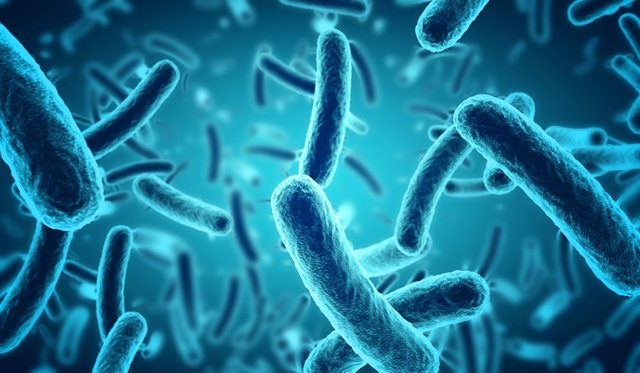
Microbiome Profiling
Samples were collected from a particular part of the mice guts (cecum) following a 5-6 hour fasting period.
DNA was extracted for computer data analysis and classification.
The exact methods are described in some detail in the paper and are beyond my area of expertise.
Results
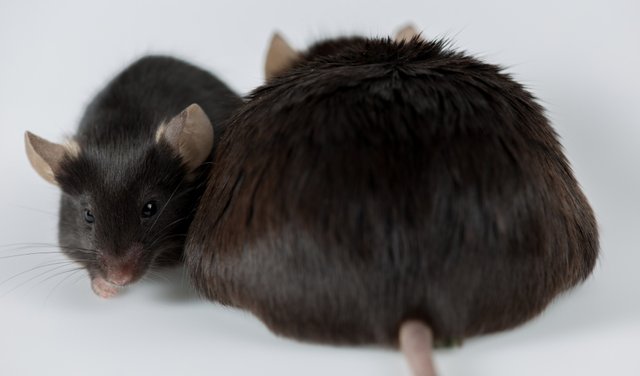
As expected the HFHS diet mice had a poorer ability to clear glucose compared to the chow fed mice as shown by glucose tolerance tests.
The HFHS mice were also more likely to be obese, with significantly higher body weight and higher amount of body fat.
Obese mice who were given resveratrol had significantly better glucose tolerance tests than those that weren't.
Resveratrol was found to alter the microbiome (community of bacteria in the guts) of obese and non obese mice.
Transplanting the altered microbiome from resveratrol fed mice to non resveratrol mice seemed to replicate the improvements in glucose control.
This suggests that a significant mechanism for how resveratrol works is by altering the microbiome.
Further in obese mice the changes in glucose metabolism did not seem to be associated with weight loss.
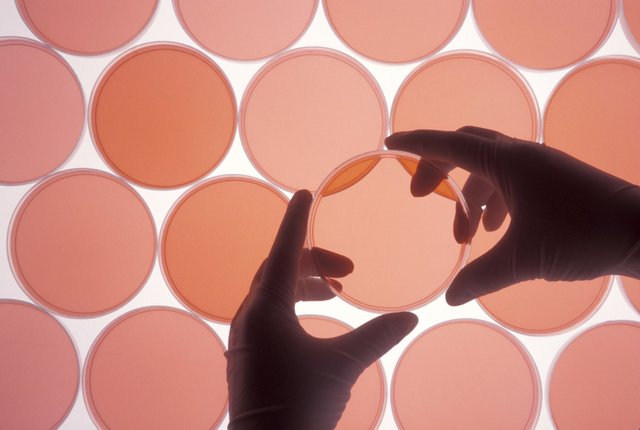
More On the Microbiome Changes
A phylum (plural phyla) is a classification ranking in biology [2](like species but higher up, above class).
Resveratrol seemed to change the phyla in the the gut in the following ways:
The ratio of Bacteroidetes to Firmicutes was higher.
A relative reduction in Turicibacteraceae, Moryella, Lachnospiraceae, and Akkermansia.
A relative increase in Bacteroides and Parabacteroides in relation to those in point 2.
I am not a microbiologist but I have read of previous studies that are consistent with the findings in point 1 and point 2.
The take home point here is that the gut bacteria in the resveratrol-fed mice were significantly altered compared to the controls.
Discussion and Limitations

Lots of Material and Data
This study comes with a lot of supplemental material and data which is normally a good thing because it allows a more detailed review of the results and methods.
However, I wasn't able to find the raw figures which comprised some of the graphs. This may simply be because of the sheer amount of material presented making it hard to find.
Some of the graphs were also quite small and hard to read.
A simple table summary of the GTT figures for each group would have been useful.
Genetic and Microbiological Tests
In addition I am not a microbiologist or geneticist so can't really speak to the methods used in some cases e.g. in identifying bacterial types and the laboratory based analyses involved here.
I will therefore leave that up to those with the pre-requisite expertise to do and concentrate on the things I am familiar with.
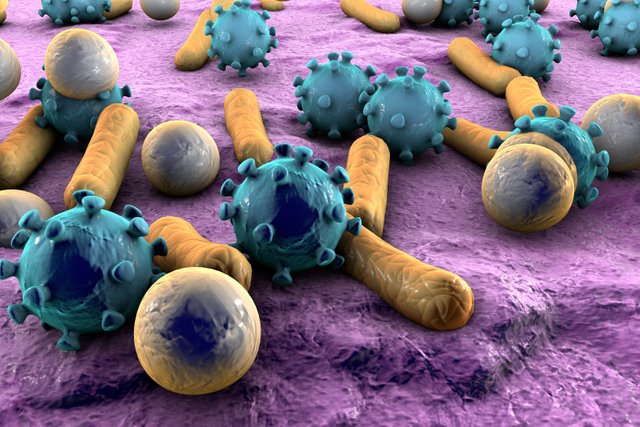
Bacteroides : Firmicutes Ratio
One interesting point that did come up and that I have read of previously is the changes in relative ratio of certain bacterial types.
A quick search on Medline brings up a number of papers suggesting the link between poor diet/obesity and a lower ratio of Bacteroides to Firmicutes (as found here) both in humans and animals.
It seems that at least part of the way that resveratrol may work is by correcting such differences.
Resveratrol May Act Via Multiple Mechanisms
That does not mean it is the only way though.
It is entirely possible that there are a combination of mechanisms only one of which involves the microbiome.
It is also possible that it was not necessarily the bacteria themselves being transferred that induced the change.
It could be some unidentified metabolite (either of resveratrol or produced by the bacteria) that brought about the differences.
This could be determined more accurately using further research - for example using heat destroyed bacteria for transplantation (described at the end of the paper).

Mice Are Not Humans
Although this research is promising there is no guarantee that we would see the same results in humans.
The human and mouse gut are similar but they are not identical.
Previous studies in mice (e.g. with leptin) and other studies with resveratrol have shown that extrapolating mouse models to the human situation does not always work.
Further humans do not behave like laboratory mice.
You can't control what they eat and you also can't control their exposure to other humans (and potentially other bacteria/micro-organisms).
This may, however, provide a further avenue for exploration.
I mentioned earlier how previous research in animal models of resveratrol did not always seem to apply to humans.
It is possible that this microbiome related mechanism may be one of the hindrances to resveratrol working as effectively in human studies.
Further if this is confirmed by future research it may be possible to develop (accessory) agents which might facilitate microbiome change and allow the animal results to be replicated in humans.
Very Small Sample Size
The sample sizes used here of 40 (and 20) are tiny, particularly when you break the main group down into its subgroups of 10.
We need conformation from larger studies and repetition to establish that these results aren't the result of some sort of anomaly.
Conclusion/TLDR

Overall this study is an interesting starting point for further research into the how resveratrol might have an effect on glucose clearance/metabolism.
It confirms that (in mice at least) supplementation of the diet with resveratrol has significant benefits for glucose clearance particularly in mice who are obese and/fed a high fat high sugar diet.
This adds further evidence to support the potential use of resveratrol in treating type II diabetes and obesity.
This study also shows that at least some of the effects of resveratrol seems to relate to alterations in gut bacteria.
This is only preliminary research though.
Further research is required to replicate these results in larger sample sizes, to confirm that it is bacterial transference and not a metabolite that is responsible and also to investigate how well these findings translate to humans.
Thank you for reading

References
Sung, Miranda M., Ty T. Kim, Emmanuel Denou, Carrie-Lynn M. Soltys, Shereen M. Hamza, Nikole J. Byrne, Grant Masson, et al. 2017. “Improved Glucose Homeostasis in Obese Mice Treated With Resveratrol Is Associated With Alterations in the Gut Microbiome.” Diabetes 66 (2): 418–25.
Wikipedia contributors. 2017. “Phylum.” Wikipedia, The Free Encyclopedia. January 25. https://en.wikipedia.org/w/index.php?title=Phylum&oldid=761881252.
If you like my work please follow me on Steemit: @thecryptofiend & on Twitter : Soul_Eater_43.
All uncredited images are taken from my personal Thinkstock Photography account. More information can be provided on request.
Before you go have you filled in the Coinbase form to list STEEM? It only takes a few seconds. THIS POST shows you how.
Are you new to Steemit and Looking for Answers? - Try:

@TheCryptoFiend, your post has been chosen by @STEEMNEWS.ONLINE as one of today's promoted posts for its excellent content. We've upvoted, resteemed and published it through Facebook & Twitter.
As the author of a SNO featured article, you've been awarded one TRAIL coin. Please stop by the SteemTrail Discord server to learn more about how to claim your TRAIL coin. You will need an Open Ledger account to do so.
STEEMNEWS.ONLINE is the @SteemTrail for #news and watches the #steemnews tag most closely. Please consider supporting excellent news articles by making steemnews.online one of your operators on Streemian, in addition to steemtrail.
Thank you for your hard work and contribution of excellent content to Steemit.

If you would rather not be promoted by STEEMNEWS.ONLINE, please inform us by replying to this comment and we will honor your request.
Thank you so much:)
Only if it were called "reversitol" I would have bet it was made by the same people who brought you this
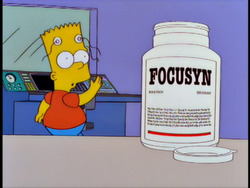
You can't beat classic Simpsons :)
Cool. You are a fan. They found their way into my post today as well. Seems no matter how hard I try I just can't quit them.
Hello, this is first time replying on steemit!
If you enjoyed reading about the study that you found, I recommend checking out an old professor of mine named Jairam K.P. Vanamala (http://foodscience.psu.edu/directory/juv4).
His research specializes in the prevention of chronic diseases and cancer using food based and gut bacteria based methods.
Happy researching!
Welcome to Steemit! Thank you for the suggestion, I will check it out:)
Thanks for sharing! You got me with the article at "It is most commonly associated with red wine and the Mediterranean diet." - i love both of these! :)
Thank you for reading!
Me too lol! Although I don't drink anymore.
This post looks amazingly interesting, I will have to return to read it completely when I have time! Thanks for sharing your knowledge!
Thank you:)
That's a really cool study. At the beginning, I wanted to criticize the sample size and the fact that mice are no humans, as you did and as I did in others of your post. But with time, I learned about this field. This is in fact a real good start and I hope further studies will be funded! :)
Yes the problem with all medical research is the fact that it is so expensive that you have to do it in small pieces at a time.
Human studies are even more complicated because it becomes vastly more expensive and there are a lot more ethical hurdles and approvals to get.
That's one of the reasons it takes so long to establish anything.
The problem is the media takes the study and then basically takes it as proven fact.
Yes for sure. Microbiome research is big, so is life extension and diabetes. This has all three. It may also give part of an answer to why previous research on resveratrol has been so mixed.
Thank you for commenting:)
This post has been ranked within the top 25 most undervalued posts in the second half of Mar 09. We estimate that this post is undervalued by $15.59 as compared to a scenario in which every voter had an equal say.
See the full rankings and details in The Daily Tribune: Mar 09 - Part II. You can also read about some of our methodology, data analysis and technical details in our initial post.
If you are the author and would prefer not to receive these comments, simply reply "Stop" to this comment.
Thank you:)
Your reward for being in
Promotedis an upvote from @pipes.Thank you:)